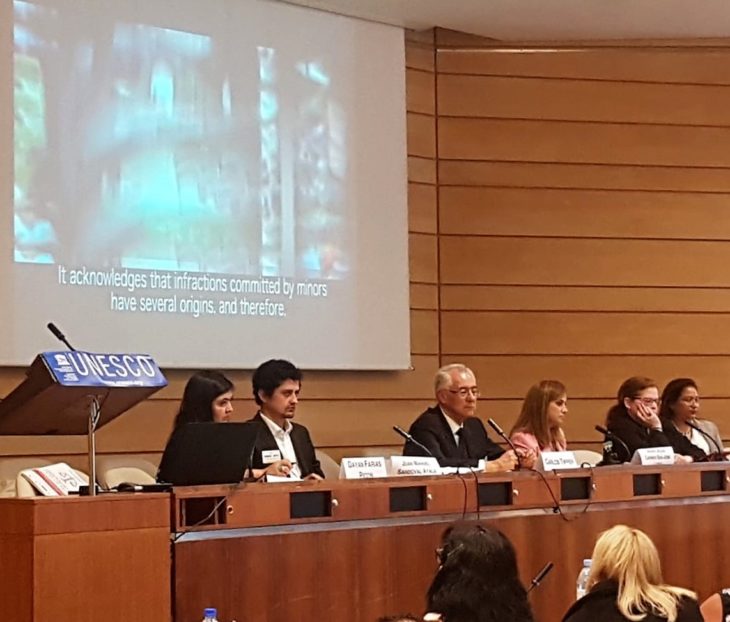The Programme is supporting the road map produced by the Regional Working Group on Restorative Justice, that it's composed of representatives from public institutions from Chile, Argentina, Mexico, Paraguay, Colombia, Panama, Brazil and Ecuador

Children and adolescents represent a particularly vulnerable group and the offences committed by them represent a complex problem that has a variety of origins. These offences require a comprehensive response, in order to promote prevention and timely treatment to break the cycle of crime and thus make these people in their formative years useful to society. The restorative approach promotes the rehabilitation and reintegration of children and adolescents so that they can assume a constructive role in society and also contribute to reducing recidivism.
Precisely because restorative justice is a particularly relevant avenue for working with children and adolescents in conflict with the law, the European Union EUROsociAL+ Programme’s access to justice line within the Democratic Governance area is working with several Latin American countries to modernise and strengthen their juvenile criminal justice systems, particularly through the incorporation of restorative justice practices and tools.
Specifically, the Programme is supporting the Road Map produced by the Regional Working Group on Restorative Justice. The Working Group was established in April 2018 in Santiago de Chile and to date it is composed of representatives from public institutions from Chile, Argentina, Mexico, Paraguay, Colombia, Panama, Brazil and Ecuador.
To this end, the work being done in this area both at the national and regional levels was presented at the World Congress on Justice for Children and Adolescents, held at UNESCO headquarters in Paris.
The World Congress on Justice for Children and Adolescents was organised by a consortium of international organisations comprising the International Association of Youth and Family Judges and Magistrates (IAJJF), the Terre des Hommes Foundation, Penal Reform International (PRI), the International Children’s Rights Network (CRIN), Defence for Children International (DCI), the Belgian Judicial Training Institute (IGO-IFJ) and UNESCO’s Information for All Programme (IFAP). The aim of the congress was to involve professionals and stakeholders from around the world in order to share their experiences on juvenile and family justice, crime prevention and violent extremism.
Under the title: “Strengthening juvenile and family justice systems around the world: Specific and promising practices on child protection, juvenile delinquency prevention, alternative programmes to detention, reintegration and aftercare”, a discussion was held on “Ibero-American standards on juvenile criminal mediation and the implementation of non-custodial measures: Good practices and replication”. The discussion involved representatives from the United Nations Office on Drugs and Crime (UNODC), the Judiciary Council of Ecuador, the International Association of Youth and Family Judges, the Department of Justice of the Basque Country in Spain, the Ibero-American Judicial Summit, the Inter-American Commission on Human Rights and the EUROsociAL+ Programme.
Área de políticas de gobernanza democrática. Democratic governance area / EUROsociAL+



